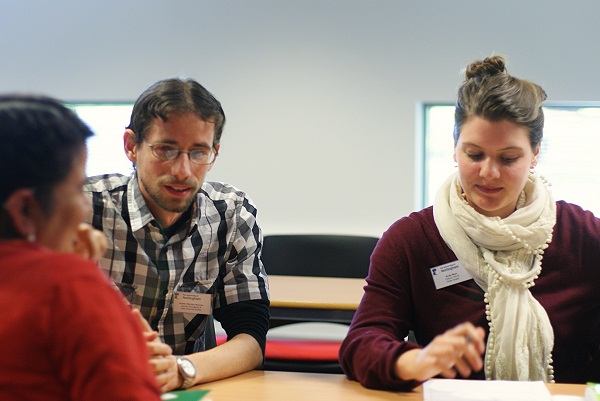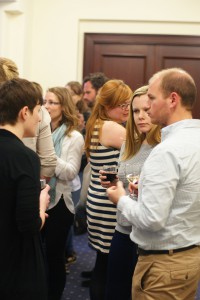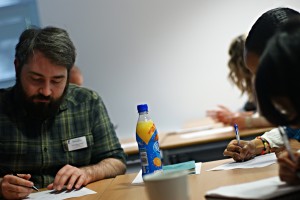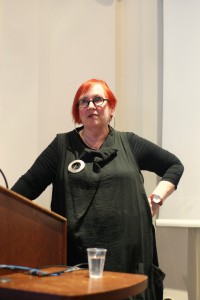
21/05/2015, by CLAS
The First CLAS PG Symposium: 27-28 April 2015
Something that was often said amongst postgraduate researchers in our school was that we didn’t really know many people outside of our own individual departments. We sat in our separate PhD workspaces, divided by subject, and had a vague idea of what our neighbours were doing, but not much more than that. So at the beginning of this academic year, we decided to do something about it. A committee was gathered and step-by-step we planned a two-day symposium that would aim to give all PGs within CLAS the chance to share their work and to get to know one another. Everyone was pleasantly surprised by the amount of interest the Symposium generated. It’s hard to tell sometimes if people will find these events genuinely useful, or if it’s just another thing to add to the to-do list – but in the end the organisers received twenty-two abstracts. The topics really showed the range of research that goes on within our school, and when it came to the event itself, this variety became even clearer. There were papers on piracy, Soviet linguistics, the changing role of the TV, secret cinema, Portuguese advertising campaigns… so much to learn! A really satisfying aspect of this mix was that so many people engaged in the debates that followed, regardless of whether this was normally their field or not. Perhaps this shows that the initial aims of the Symposium were met; that participants felt relaxed enough to openly discuss ideas amongst peers, and wanted to know more about everyone else’s research interests.
At the end of day one we were lucky to have Professor Pat Thomson from the School of Education as our keynote speaker. It’s funny because out of all the things we discussed, Professor Thomson’s presence was one thing that had been unanimously voted for from the start. This is testament to how much we all value her blog on academic writing (link here if you don’t know already!) and how much we felt she was the right person to talk to postgraduate researchers at all stages of study. She covered several aspects of ‘the postgraduate experience’ – from challenges and issues involved in building up an online presence, to accumulating your own ‘inner library’, and to the obstacles that stand in the way of young researchers finding a place on the career ladder. There were also lots of reading recommendations; one in particular, How to Talk About Books You Haven’t Read by Pierre Bayard, caught the attention of many.
In addition to the traditional panel format, the Symposium wanted to add something practical to the programme. This was tricky, because deciding what was ‘practical’ and ‘useful’ for students at a variety of stages of PG study has a lot of variables: those just beginning don’t want to worry too much about ‘what next’, but likewise those about to submit a PhD probably feel that it’s a bit late for a session on academic writing skills. However, despite the challenge, those organising the workshops did a great job. On day two, there were four sessions to choose from. These were Finding success as an early career researcher with Dr David M. Bell (University of Sheffield), Careers outside academia for arts and social science researchers with Dr Nat Edwards (Canopy Insight), Dissertation dos and don’ts with Dr Paul Grainge (University of Nottingham, CLAS) andPublic engagement with Dr Laura Carletti (University of Nottingham, Department of Computer Science). Copious amounts of useful notes were made, and it was a productive way to round off the working day. Of course, neither of these days would have been complete without a drinks reception to conclude. Discussions continued, some of them remained academic, others did not. Several ideas came from these two days, and one of those is the idea of creating a school-wide podcast challenge, where two PG researchers explain to each other something interesting that they’ve come across in their work that week. It could be fun, and could continue this cross-departmental community that the Symposium really tried to develop. Keep your eyes peeled for future developments! It was great to see so many people involved, and with the amount of positive feedback that’s been received so far, it looks set to be repeated. 
Olivia Hellewell
No comments yet, fill out a comment to be the first



Leave a Reply